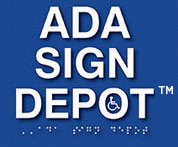Title III prohibits public accommodations from discriminating against disabled individuals with respect to access to goods, services, programs and facilities, and (with limited exceptions) requires public accommodations to make reasonable accommodations so that disabled individuals may equally access these goods and opportunities. Accommodations may include modification of physical space in order to remove physical barriers, the provision of auxiliary aids for communication (such as sign language interpreters, closed captioning, written materials in Braille), and a wide variety of other, context-specific adjustments to the way business is conducted or services are offered.
With the upward adjustment, the maximum civil penalty for a first violation of Title III rises from $55,000 to $75,000, and the maximum civil penalty for a second violation rises from $110,000 to $150,000. The new maximums apply to violations that occur on or after April 28, 2014. The last time these penalties were adjusted for inflation was in 1999.
These penalties can be consequential for small businesses or those with thin profit margins, and can accrue to significant levels for businesses of all sizes if the DOJ finds evidence of repeated violations of Title III. The DOJ’s current ADA enforcement environment is an aggressive one, consistent with the aggressive positions recently taken by many other federal agencies which protect workers’ and civil rights, such as the National Labor Relations Board, the Equal Employment Opportunity Commission, and the Office of Federal Contract Compliance and Programs. The retail and hospitality industries continue to provide inviting targets for the DOJ, particularly high-profile businesses such as top restaurants with celebrity chefs.
The increased penalties are one more reminder that the costs associated with ADA compliance should not be postponed until enforcement – in the form of a civil lawsuit or the DOJ – is knocking at your (hopefully accessible) door.



